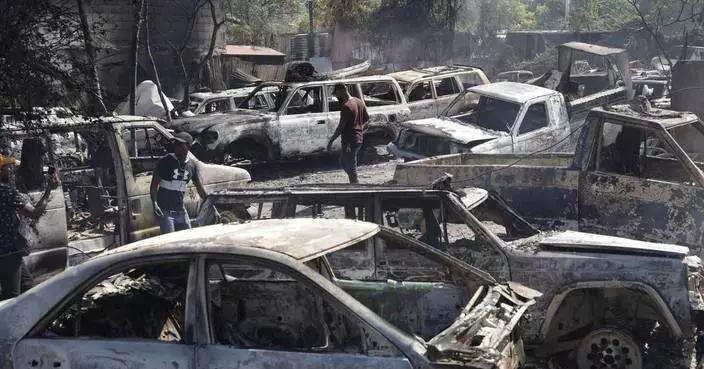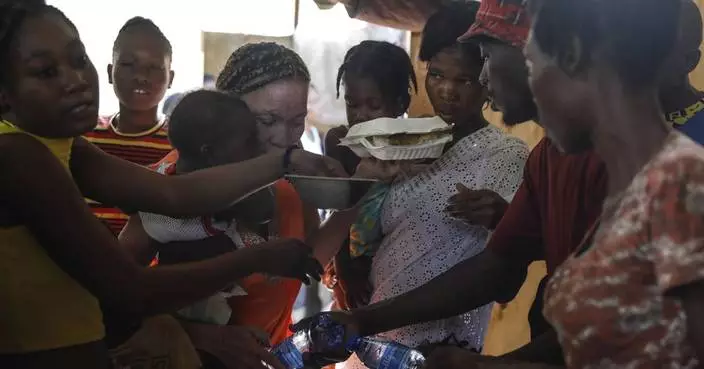Police in northern India have broken up a gang that promised professional test-takers and high-tech listening devices to help applicants pass a two-day test to become police constables, officials said Tuesday.
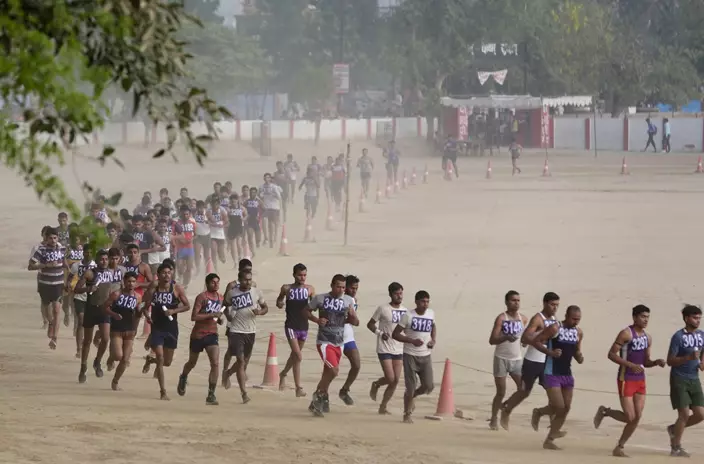
FILE- In this April 26, 2016 file photo, candidates, many barefoot and unable to afford running shoes, run to pass a fitness test during a recruitment drive for the Uttar Pradesh state police, in Allahabad, India. Police in northern India have broken up a gang that promised professional test-takers and high-tech listening devices to help applicants pass a two-day test to become police constables, officials said Tuesday. (AP Photo/Rajesh Kumar Singh, File)
The Uttar Pradesh state Special Task Force made 23 arrests Monday and Tuesday, said police official Amitabh Yash, and police were carrying out additional raids in search of more people. The suspects were arrested in major cities across the state.
Those arrested included so-called "solvers" — people paid to take a test for someone else — and agents who represent them. Police also seized small listening devices, designed to be worn inside the ear, so that answers could be dictated to test-takers.
In some cases, police said cheaters would take photos of the tests and message them to people waiting outside. Those people then relay answers back to the test-takers.
Testing to become constables, low-level Indian police officers, began Tuesday. The job is highly sought-after among working-class and poor Indians, with more than 2.3 million people applying this year for 42,000 openings in Uttar Pradesh.
Cheating is rampant in Indian exams, in schools and for government jobs, though authorities have tightened security in recent years to try to lessen the problem. Closed-circuit TV cameras have become common in testing centers, and test-takers are often forbidden from wearing heavy clothing that could hide cellphones or crib sheets.
More than 1 million students skipped a pair of key high school exams this year in Uttar Pradesh after authorities announced the state government had created a special task force and an intelligence unit to monitor the tests.
PORT-AU-PRINCE, Haiti (AP) — A transitional council tasked with choosing Haiti’s next prime minister and Cabinet was established Friday in a move supporters hope will help quell turmoil in the troubled Caribbean country where most of the capital remains under the grip of criminal gangs.
The formation of the council, announced in a decree published Friday in a Haitian government gazette, was expected to soon trigger the resignation of Prime Minister Ariel Henry, but a new provision said he would step down when a new premier is chosen. Henry did not immediately comment.
Those awarded a seat on the council are Petit Desalin, a party led by former senator and presidential candidate Jean-Charles Moïse; EDE/RED, a party led by former Prime Minister Claude Joseph; the Montana Accord, a group of civil society leaders, political parties and others; Fanmi Lavalas, the party of former President Jean-Bertrand Aristide; the Jan. 30 Collective, which represents parties including that of former President Michel Martelly; and the private sector.
The two non-voting seats are represented by someone from Haiti’s civil society and its religious sector.
“The establishment of the...politically inclusive council signals the possibility of a new beginning for Haiti,” a Caribbean trade bloc known as Caricom, who helped form the council, said in a statement.
It said that the council “will take the troubled country through elections to the restoration of the lapsed state institutions and constitutional government.”
“It is also clear that one of the first priorities of the newly installed Presidential Council will be to urgently address the security situation so that Haitians can go about their daily lives in a normal manner; safely access food, water and medical services; children can return to school; women can move around without fear of horrific abuses; and so that businesses can reopen,” Caricom said.
Carl-Henry Joseph, a 42-year-old street vendor, said he heard that the council was established thanks to a small radio he balances atop loaves of bread he sells out of a wheelbarrow.
“I'm not going to call it comforting news. There are still gunshots,” he said. “I don't know if the council will be able to solve Haiti's problems.”
But Joseph was trying to remain optimistic: “For now, that's all we have.”
The published decree acknowledged what it called “a multidimensional crisis” that has worsened since the July 2021 assassination of President Jovenel Moïse. It said the crisis has led to a “catastrophic humanitarian situation” and that Haiti is experiencing “unprecedented institutional dysfunction, which has led to a political impasse.”
It also noted that Henry would present his resignation once a new prime minister is appointed.
The decree, which was signed by Henry and his Cabinet, noted that no one can be a member of the council if they have been sanctioned by the U.N., oppose the deployment of a foreign armed force or plan to run in the next general election, among other conditions.
While an election date hasn’t been set, the decree stated that the president-elect must be sworn-in on Feb. 7, 2026 at the latest, and that the council will exercise presidential powers until then.
The council also will be responsible for helping set the agenda of a new Cabinet and will appoint members to form a provisional electoral council, which is needed before elections are held. It also will establish a national security council whose responsibilities have not been decided.
The decree does not set any deadlines for choosing a new prime minister or Cabinet, stating only that the council must “quickly” do so.
The council will be based at the National Palace, and its mandate is supposed to end when a new president is sworn-in, with no possibility of extension.
The United Nations Integrated Office in Haiti posted on X that it would continue to closely follow the political process as it called for international support for Haiti’s National Police, saying it is “essential to restore security and the rule of law.”
“We reaffirm our commitment to supporting the country’s institutions in their efforts to restore democratic institutions,” María Isabel Salvador, the U.N. special envoy for Haiti, said in a statement.
The council's creation comes exactly a month and one day after Caribbean leaders announced plans to help form the nine-member panel, with seven members awarded voting powers.
Friday’s development was cheered by those who believe the council could help steer Haiti in a new direction and help quell widespread gang violence that has paralyzed swaths of the capital of Port-au-Prince for more than a month.
More than 1,550 people have been killed across Haiti and more than 820 injured from January to March 22, according to the U.N.
In addition, gang violence has forced nearly 95,000 people to flee Port-au-Prince in the span of one month, with more than half of them having previously been left homeless as gunmen raze neighborhoods, the U.N.’s International Organization for Migration said Friday.
While gangs have long operated throughout Haiti, gunmen organized large-scale attacks starting Feb. 29. They burned police stations, opened fire on the main international airport that remains closed and raided the country’s two biggest prisons, freeing more than 4,000 inmates.
The attacks were meant to prevent the return of Henry to Haiti. At the time, he was in Kenya pushing for the U.N.-backed deployment of a police force from the East African country. He remains locked out of Haiti.
While the violence has somewhat subsided, gangs are still launching attacks throughout Port-au-Prince, especially in the downtown area, where they have seized control of Haiti's biggest public hospital.
Joseph, the street vendor, said his family is in constant danger and that he hopes the council “can deliver something for the country."
“If they can bring stability so that everyone can get back to their homes and out of the shelters, and if the multinational force can come in and stabilize ... the country, that would be a step forward,” he said. “Today, Haiti is in the dark. We don’t know if the sunlight will come through. I’m hoping for the best."
Coto reported from San Juan, Puerto Rico.
Follow AP’s coverage of Latin America and the Caribbean at https://apnews.com/hub/latin-america

Passengers are transported in a mini-bus in Port-au-Prince, Haiti, Wednesday, April 10, 2024. (AP Photo/Odelyn Joseph)
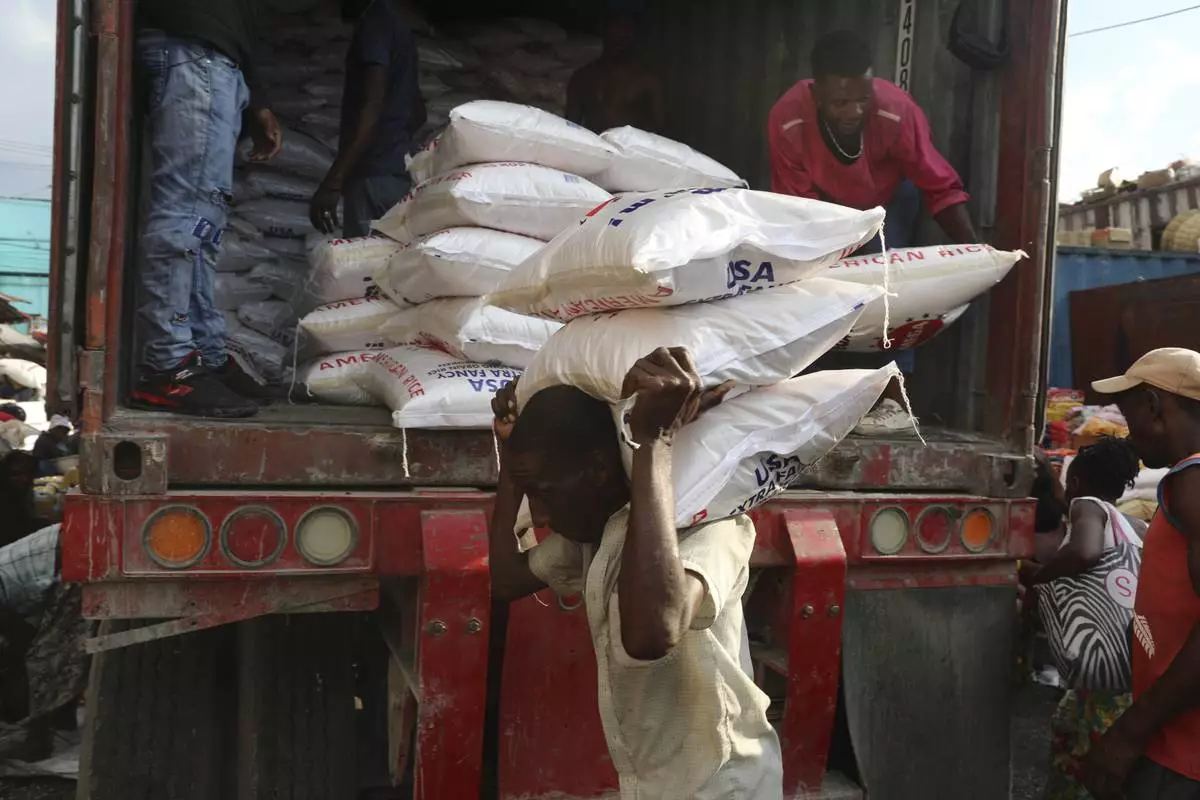
A worker unloads sacks of rice at a market in the Petion-Ville neighborhood of Port-au-Prince, Haiti, Wednesday, April 10, 2024. (AP Photo/Odelyn Joseph)
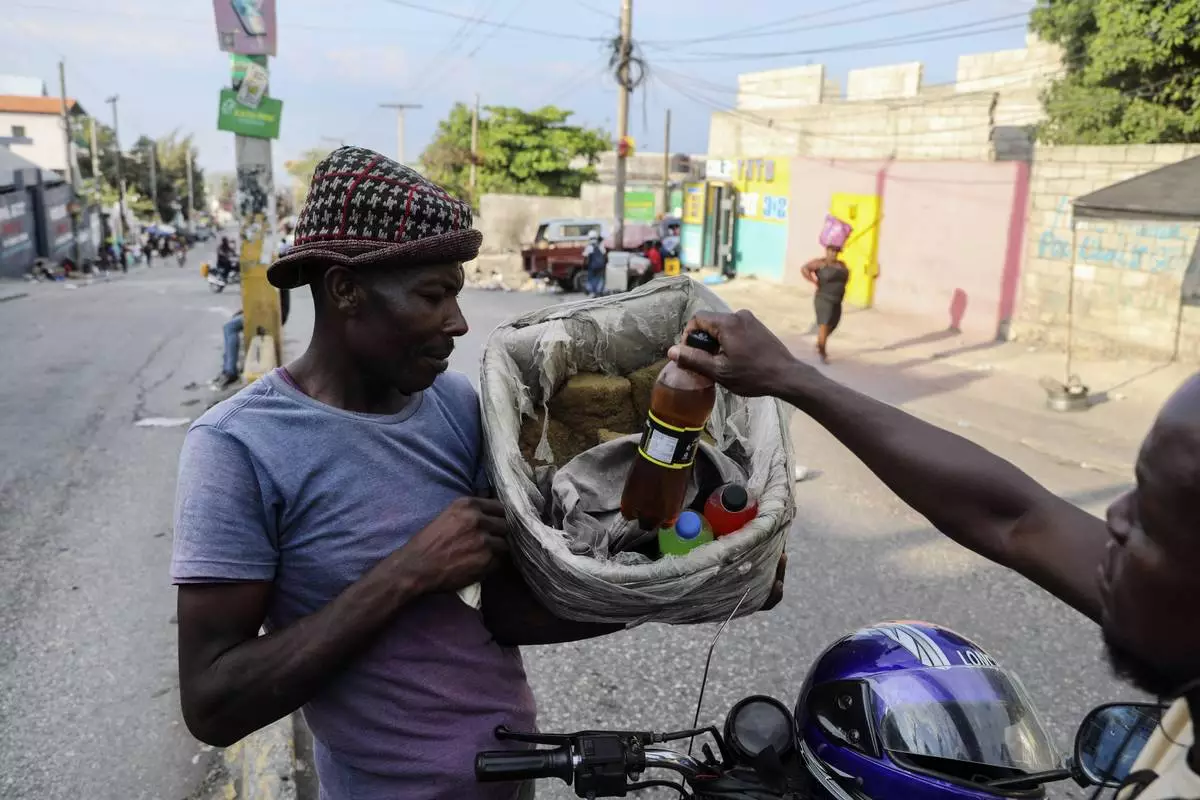
A customer purchases a beverage from a street vendor in Port-au-Prince, Haiti, Wednesday, April 10, 2024. (AP Photo/Odelyn Joseph)
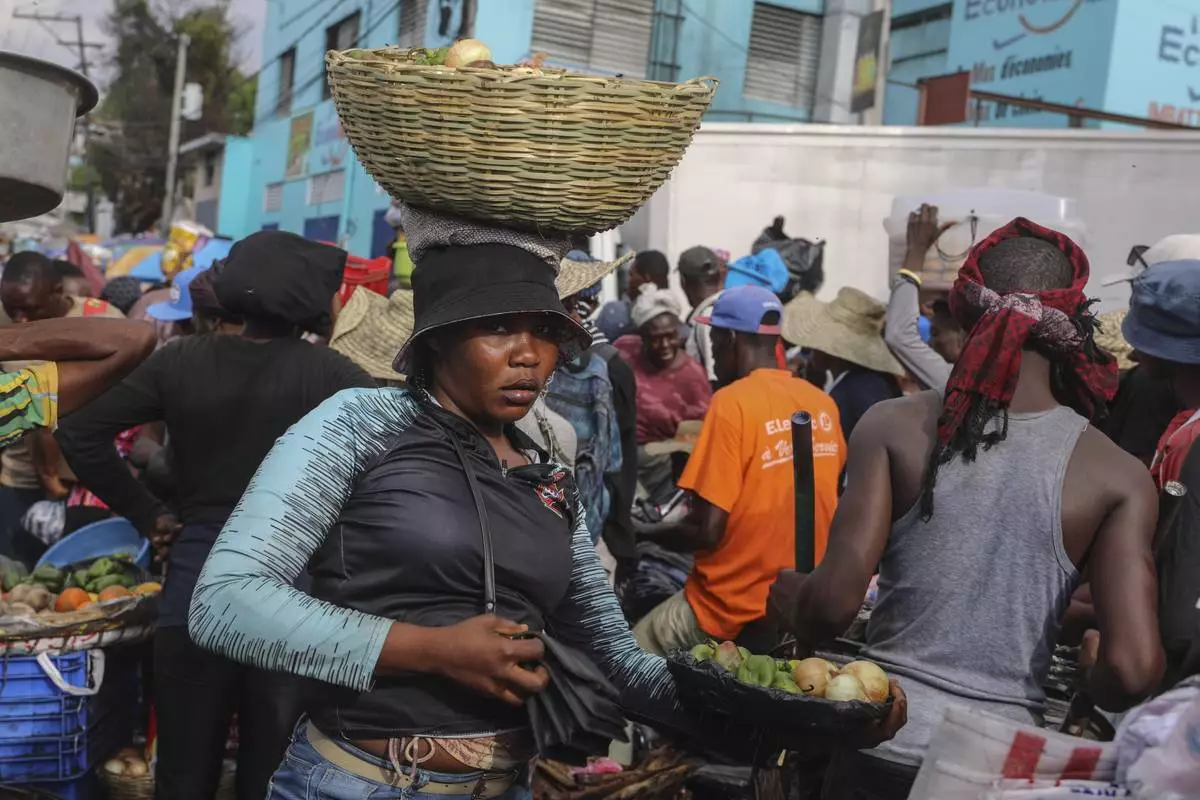
A street vendor balances a basket of vegetables on her head in the Petion-Ville neighborhood of Port-au-Prince, Haiti, Wednesday, April 10, 2024. (AP Photo/Odelyn Joseph)
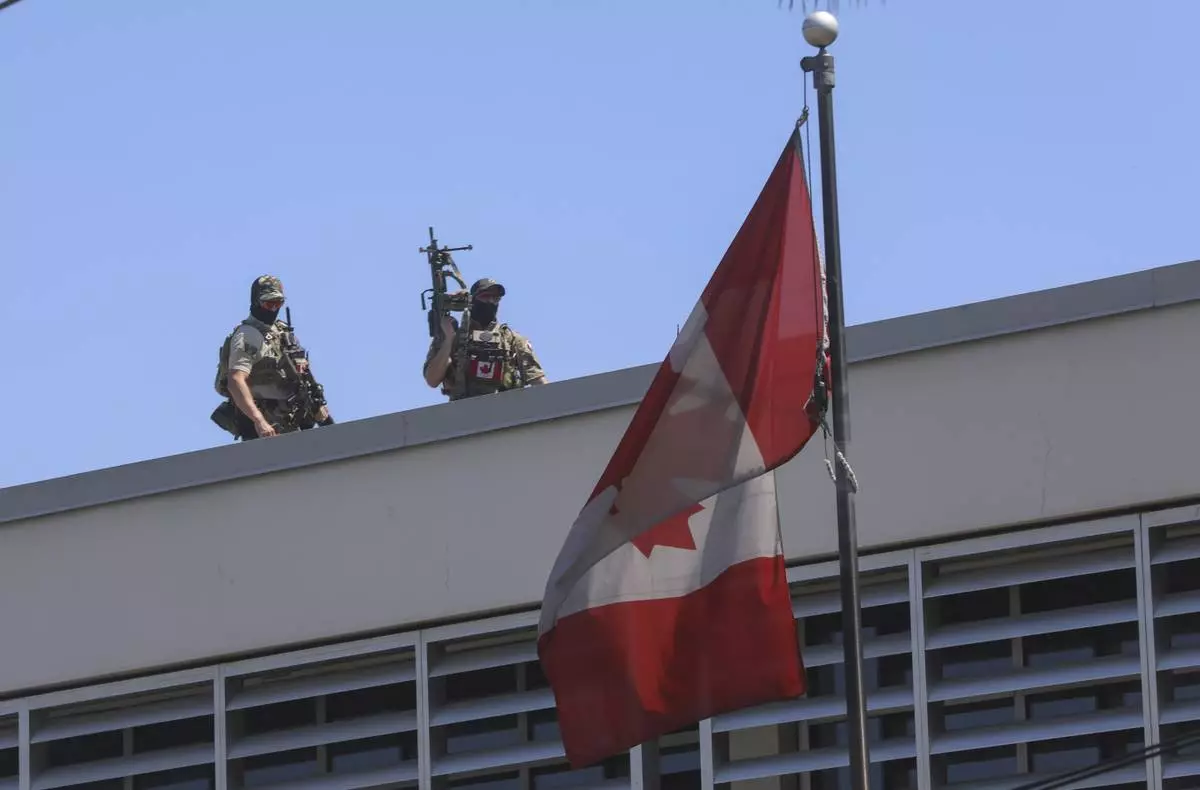
Canadian soldiers stand guard on the rooftop of their embassy in Port-au-Prince, Haiti, Wednesday, April 10, 2024. (AP Photo/Odelyn Joseph)









